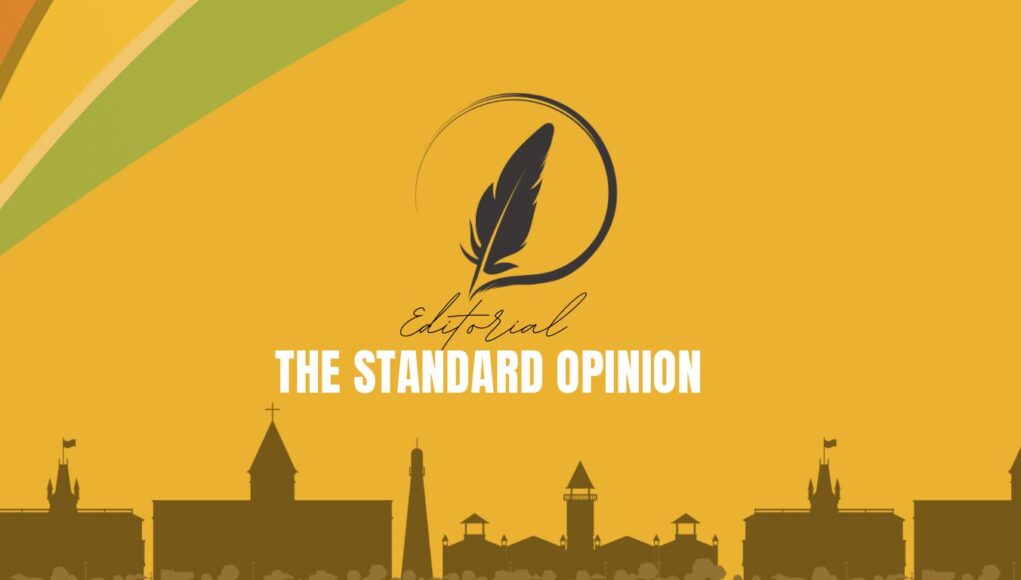As humans, we often neglect to consider the consequences of our reactions when our beliefs and opinions are challenged. Yet, there are pivotal moments when we realize that kindness could have triumphed over resentment. These are the moments in which we regain a piece of our humanity. Unfortunately, not everyone reaches this understanding. For those fortunate enough to experience this epiphany, it does not absolve past transgressions nor normalize them, but it fosters a spirit of understanding rooted in respect, patience, and kindness—qualities that are essential in an era marked by radicalized viewpoints that fuel division and fear.
While disagreements are natural, we must strive to remain respectful. The timeless adage reminds us that “you can catch more flies with honey than with vinegar.” This means that, although you don’t have to agree with someone’s viewpoint or ideology, respecting their right to express their opinions and refraining from outright dismissal can significantly contribute to fostering a sense of unity and belonging. After all, who wants to live in a society where their views are silenced?
Anyone who has lived long enough understands that viewing life solely in black and white—without accommodating nuance—can be just as detrimental to progress as following a misguided role model. Logically, why would anyone restrict themselves from considering a “dissenting” view that could broaden their understanding of a particular subject? Is it because their belief system is so fragile that it cannot withstand scrutiny? Or perhaps, as the saying goes, ignorance is bliss.
Another possible explanation is cognitive dissonance, a theory introduced by psychologist Leon Festinger in 1957. He noted that individuals experience mental and physical discomfort when confronted with information or behaviors that conflict with their existing beliefs.
The resolution of this internal conflict is particularly intriguing. Individuals may resolve cognitive dissonance by changing their beliefs to align with new information, adding new beliefs to reinforce their existing positions, downplaying the significance of the new information, or seeking validation from like-minded individuals.
This mental gymnastics seems burdensome when simply acknowledging differing opinions could save considerable effort. We have managed to coexist in a world of diverse opinions, and the true test of our tolerance lies in how we address these differing viewpoints.
We can choose to be rude and dismissive, or we can embrace the opportunity to learn from each other. The latter reflects maturity and fosters hope, while neglecting this approach leads to regression. If we cannot coexist despite our differences, how can we claim to share a common destiny?
Consider the recent outburst from a newspaper publisher who professes to be a beacon of hope, yet publicly unleashed a torrent of insults directed at the Editor-in-Chief of this news agency, Ms. Abena Rockcliffe.
In her editorial, Ms. Rockcliffe examined the complexities of Guyana renegotiating an oil contract with U.S. oil giant ExxonMobil. Based on her analysis, she concluded that the country could risk significant losses if it pursued forced negotiations with the company. Her piece contained all the vital elements required for such an analytical discussion.
The EIC presented a clear argument about the implications of renegotiating the Production Sharing Agreement (PSA) with ExxonMobil, asserting that pushing for renegotiation could have dire consequences for Guyana’s economy and development. She supported her claims with evidence, referencing the Christopher Ram Survey and excerpts from the PSA to ground her argument in factual context. Moreover, she acknowledged opposing views by discussing public calls for renegotiation and citing political opinions that recognize the imbalanced nature of the contract.
Most importantly, her comparative analysis, which referenced countries like Argentina and Venezuela that faced severe consequences for alienating foreign investors, was focused and well-articulated. Overall, her piece was professionally crafted and presented a compelling argument that forcing ExxonMobil back to the negotiating table could backfire.
In contrast, the publisher’s response was laden with vinegar. He attacked the author rather than address her arguments, squandering a valuable opportunity to debunk the claims made by Rockcliffe—claims that countered his own stance. Instead of engaging with her analysis, he resorted to questioning her reputation, branding her a “sellout.” His response, devoid of any academic grounding, failed to effectively challenge Rockcliffe’s assertions.
Choosing vinegar has seemingly soured his image. This same publisher has expressed intentions to run in the next General and Regional Elections. Could his disparagement of someone with a differing view, portray him as unwilling to accept alternative perspectives of the wider masses? And pray tell, what punishment would he unleash then?
The larger question remains: how influential and inspiring can a presidential hopeful be if he publicly dismisses those with opposing opinions? Is this the kind of leader Guyana needs? The nation will answer that question in the upcoming elections.
Until then, let us choose honey and strive to stay sweet.











